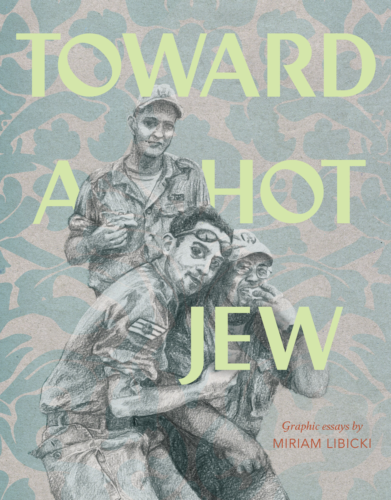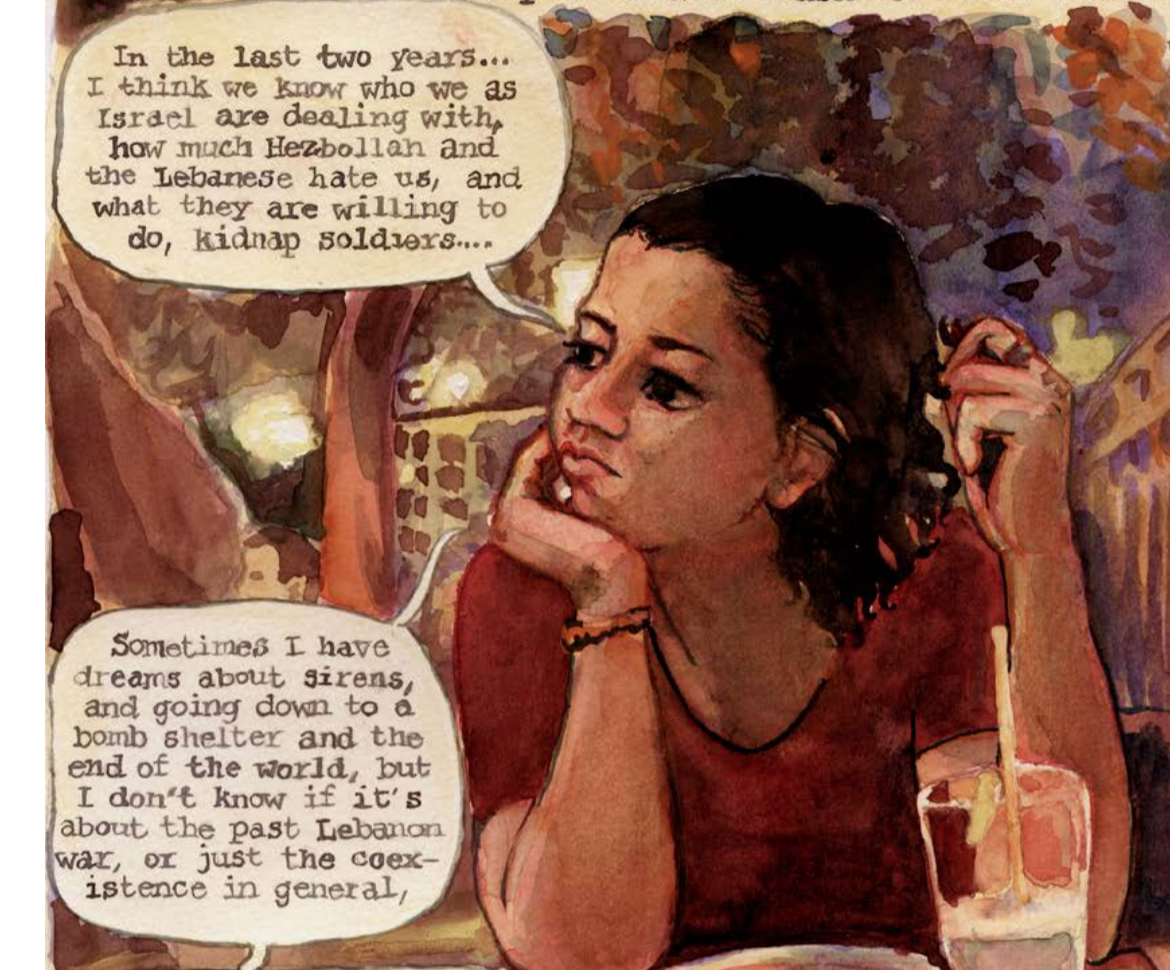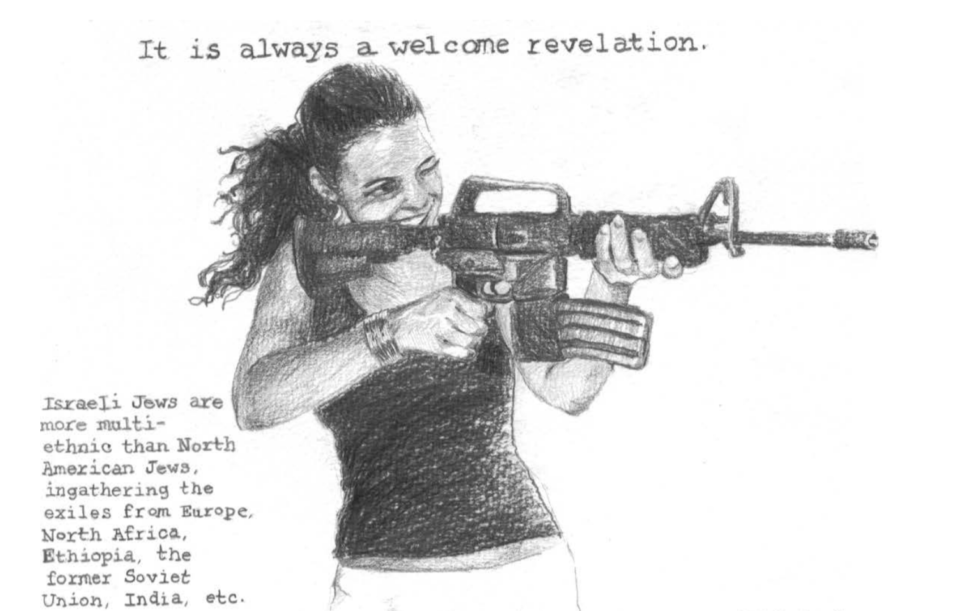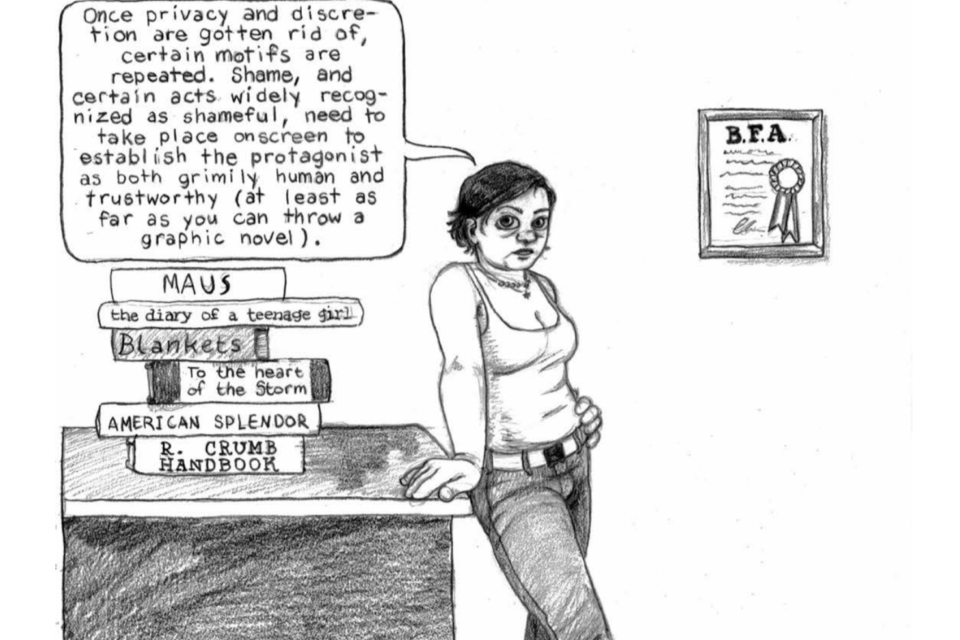Love it. Love it. Love it. Miriam Libicki’s Toward a Hot Jew is the book to read if you love autobiographical comics – or if, like me, you have never before read autobiographic comics. Full disclosure here – like the author, I was an American/Israeli in the IDF, and struggled long and hard with issues of Jewish/American/Israeli identity. But I never pondered the nuances of “slash mark” identity or delved into the associated theories like Miriam Libicki does in her book.

Visually, I was awed by Miriam’s willingness to portray Jews of all types – and all stereotypes. Drawings of IDF soldiers liberating the Western Wall in 1967, tall, blond, and strong. Haredi Jews. Female IDF soldiers, in sleeveless shirts, pointing guns and smiling. IDF soldiers as rock stars – posing with electric guitars in place of guns. And with equal prominence, drawings of IDF soldiers as oppressors of Palestinians. Miriam is not afraid to go there.
On a narrative level, I was particularly struck by Miriam’s writings about her own upbringing, her family of “oddballs,” and what happened in her life when she eventually left Israel. She writes, “I went to Israel, pledged my soul to it, and came back.”
I can relate. I did the same thing. She says, “I write all about Israel but they can’t show my drawn essay at the local JCC because my love for Israel is not evident, and I’d break the Holocaust survivor’s hearts.”
There too, I can relate. In fact, not only can I relate, but I can feel (and cry) for her. Her discussion of refugee issues in Israel is realistic, specifically the protests in South Tel Aviv. Likewise, her portrayal of the Ethiopian experience is noteworthy, especially in terms of what the Ethiopian Jews encountered when they arrived in Israel. These are important topics, and Miriam handles them all in a powerful manner.
Maybe it’s because Miriam’s narrative is somewhat like mine, maybe because she’s opened up new avenues of thought for me, or maybe it’s something else entirely. I’m not sure. But in its own way, Toward a Hot Jew has impacted my life, and I am so happy to have read it.
The takeaway here is that through this book, I now have a new framework and vocabulary to ponder my own identity. That’s a pretty big takeaway. And while I’d always loved autobiographies, autobiographical comics was something I was previously unaware of. Now, well, I’ve got a whole new world of books to read. Thanks for both of these things, Miriam.







